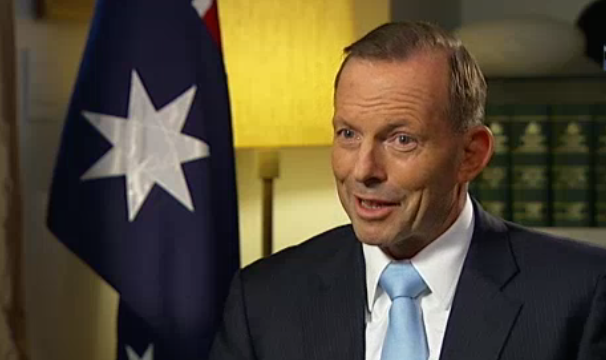Yesterday, the Prime Minister admitted with bizarre pride that his government has done everything it could to strangle the renewable energy industry.
Most observers will have worked it out long ago, but now that Abbott’s put it on the public record, credit should be given where it’s due: The government’s aim has been to “R-E-D-U-C-E” Australia’s renewable energy industry as far as possible, and in that it’s had a rare and roaring success.
The clean energy industry’s sanguine resistance has been stoic, but the figures are incontrovertible. Investment has plummeted by 88 per cent, Australia has slid from being the fourth most attractive nation to invest in to the tenth, very little new capacity has been added and the Clean Energy Council estimates 900 existing jobs have been lost.
Now that the industry knows the federal government is actively working to shut it down, the only real hope rests with the states, a number of which have been pushing to provide alternative investment pathways.
As New Matilda has previously reported (mostly Labor) states are angry that the federal government has pushed Australia to the shallow end of the $270 billion renewables investment dream pool while other nations are diving in the deep end.
The day before Tony Abbott’s incontinent interview with wind-hating broadcaster Alan Jones, the International Renewable Energy Agency (IRENA) released a report exploring the phenomenal rise of renewable energy targets over the last decade.
While the federal government successfully ground the Labor party down to a 20 per cent cut to ours, the number of nations with renewable energy targets has climbed to 164 globally.
They’re not all legislated targets like Australia’s (which is why the government had such a tough time of cutting the RET) but the point is there’s been a stabbing upward thrust.
The IRENA report finds that “164 countries have adopted at least one type of renewable energy target, up from just 43 countries in 2005”.
“Two more countries, Canada and the United Arab Emirates, have set renewable energy targets at the sub-national level.”
As IRENA Director-General Adnan Amin put it, “renewable energy targets have emerged as a popular mechanism to set national and regional economies on the path towards a more secure and sustainable energy future”.
Developing economies led the way, accounting for 131 of the 164 countries to adopt renewable energy targets, with the majority of countries focusing their targets on the electricity sector.
“The number of countries setting targets for the heating/cooling sector increased from two countries in 2005 to 47 today,” an IRENA spokesperson said. “Renewable transport targets have more than doubled from 27 countries in 2005 to 59 today.”
Underscoring what is now obvious, Amin said that “the rapid growth of targets is just one more signal of the world’s ongoing shift towards renewable energy and away from fossil fuels”.
Exactly at the half-way point of this 250 per cent increase in renewable energy targets, it should be remembered, Tony Abbott boldly declared that “this climate change argument is absolute crap”.

Five years on, at the end of the period covered by the IRENA report, Abbott’s hand-picked chief business advisor Maurice Newman asserted in The Australian that climate change was the pointy end of a United Nations tilt at world domination.
Abbott is yet to endorse Newman’s theory, but he is “sick of being lectured to by the UN”. It’s unclear what his position is on the more neoliberal World Bank and International Monetary Fund, but both recommend carbon pricing mechanisms as the best way to tackle rising emissions.
Of course, being the only nation to remove such a scheme is another of the government’s proud policy achievements, so it’s hard to see Australia reintroducing a price on pollution.
Even our poxy target of a five per cent reduction on 2000 level emissions by 2020 looks increasingly likely to be missed due, for the most part, to the government’s widely dismissed ‘Direct Action’ policy.
Whether and how Direct Action could make the deep future cuts needed will be revealed in June, but a government that doesn’t support renewable energy will find it difficult to keep the lights on without a continued reliance on coal or an eventual uptake of nuclear.
A fish out of water, Australia will have to explain its flip-flopping failures to the international community when it meets in December for the Paris climate talks, and we’ll have to do so against a backdrop of increasingly concerted global efforts.
Earlier this week even Abbott’s traditional partner in intergeneration theft, Canadian Prime Minister Stephen Harper, joined the rest of the G7 in announcing its intention to decarbonise by 2100.
One way or another, Australia’s reckoning can’t be far off, even if it has to come via the international trade sanctions that China, the United States and the European Union are reportedly considering developing to deal with climate recalcitrants.
For Australia’s sake, let’s hope it doesn’t come to that. Despite being among the highest emitters per capita, Australia makes up less than 1.5 per cent of global emissions, and the most biting reality to emerge from this whole circus is that we’re the only nation that’s really losing as we mine the depths of climate denial.
Donate To New Matilda
New Matilda is a small, independent media outlet. We survive through reader contributions, and never losing a lawsuit. If you got something from this article, giving something back helps us to continue speaking truth to power. Every little bit counts.




